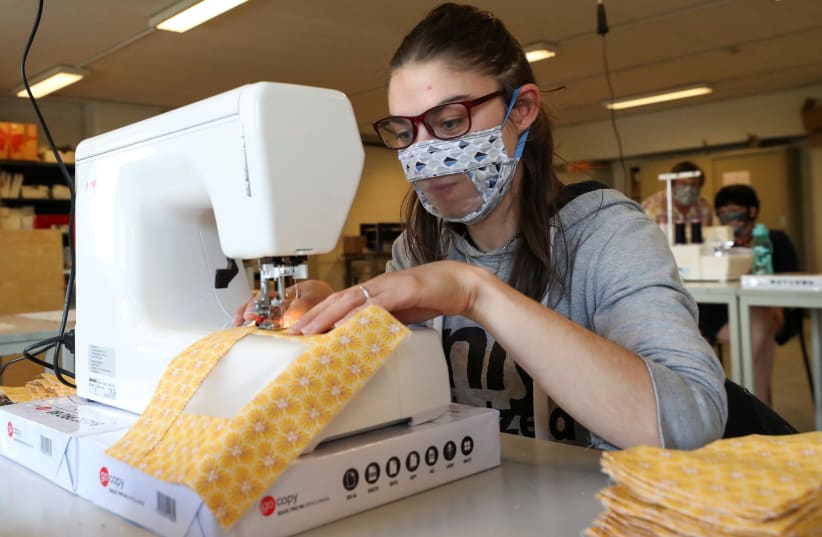Mask wearing has become the new norm during the coronavirus pandemic, and while the effort is largely done with positive intention, there's still one con: mask wearing makes it hard or nearly impossible for the deaf and hard of hearing to communicate.
To solve this issue, dozens of organizations and businesses around the world have have developed clear masks to make it easier for people with hearing issues to communicate while staying safe. According to the World Health Organization, 466 million people worldwide are hard of hearing.
"I can hear one or two words but it's random, it makes no sense… When someone is wearing a face mask I've lost the ability to lip read and I've lost facial expressions - I have lost the key things that make a sentence," Fizz Izagaren, a pediatric doctor in the UK who has been profoundly deaf since the age of two told the BBC.
Regular masks muffle words, obscure facial expressions, and make it impossible for the hard of hearing to read lips. That's why these organizations have designed masks with clear windows, allowing for faces to be more easily seen.
In Israel, researchers from the Ben-Gurion University of the Negev teamed up with an Israeli high school Public Health doctoral student Carolina Tannenbaum-Baruchi teamed up with Maayan Levin, mentor of the high school robotics team “Roboactive #2096” from Zinman Darca High School in Dimona to formulate their own version of masks with clear windows.
#Israeli students from Dimona have developed a transparent #mask, which allows deaf people to read lips!What an amazing idea! ❤ pic.twitter.com/KnORf8yWVN
— Inbar Cohen (@InbarCohen13) May 4, 2020
In northern France, Main dans la Main (Hand in Hand), an organization that supports deaf and hearing impaired people, has come up with a design for a cloth mask with a clear window that can be washed at high temperature to reduce infection, according to the BBC.
"They are also very useful for autistic people, people with learning difficulties and small children who might be scared of masks or need to be able to see facial expressions.
"In any case, a transparent mask allows you to see each other's smiles, and at this sad time this could not be more important," said the organization's founder Kelly Morellon.
However, despite efforts, the organization is unable to sell their masks in places such as Scotland, the US and Indonesia. Instead they're instructing people on how to make their own with multiple online instructions and tips, such as using dish soap to stop the plastic screen from fogging up.
While the cloth masks with a screen are a solution for the general public, they aren't sterile enough to be used in medical institutions.
Another Israeli company called Keter (Crown), which specializes in manufacturing clear protective screens in accordance with the needs of medical teams, has extended their business to to developing new clear screened face masks allowing for medical teams in Israel to more clearly communicate with their patients in need of facial cues to communicate.
In the US, the FDA has approved of one medical mask with clear screens to be used, but they're still not widely used in medical institutions, according to the BBC.
Only 500 of these masks are being used at Brigham and Women's hospital in the US city of Boston. They're currently being reserved for staff of the hospital to wear when they're communicating with patients with hearing loss. Sign language interpreters who use facial expressions and lip movements alongside body movements for expressing more clearly also wear them.
Many countries, such as the UK, still have yet to develop and or get government approval for medical masks with clear windows. Zachary Keyser and Maayan Haroni/Maariv contributed to this report.
